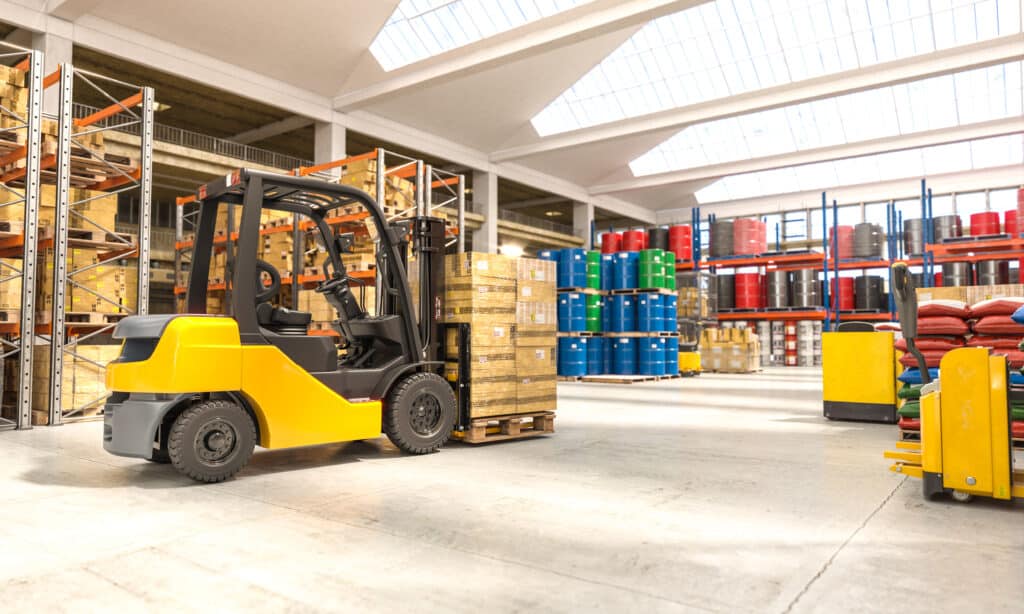
The Q1 2025 BlueGrace Logistics Confidence Index® Is Here.
Recent actions from the U.S. President, Donald Trump, have truckers more than a little concerned. During his time on the campaign trail Trump has made his opinion on foreign industries, Mexico in particular, very clear. Touting his “America First” slogan, Trump promised the American people that he would focus on bringing jobs back to the United States and would renegotiate trade agreements to put the U.S. in a better position.
While that sounds all well and good, the actual ramifications of Trump’s trade tinkering could be disastrous.
While that sounds all well and good, the actual ramifications of Trump’s trade tinkering could be disastrous. He’s already threatened higher tariffs on trade with Mexico and now the president has his sights set on another target, solar energy. His most recent legislative move would place a 30 percent tariff on any solar equipment that is manufactured outside the United States.
According to Bloomberg, the 28 billion dollar solar industry is heavily reliant on these outsourced parts. In fact, 80 percent of its supply chain is centered around the acquisition of them. Bloomberg also says that this doesn’t just affect the renewable energy industry, driving it to the point of being cost prohibitive, but it could also cause 23,000 Americans to lose their jobs. The tariff would not only target solar panels, but a number of consumer electronics and the steel industry. It’s highly likely that these tariffs could create restriction on US-made goods in other countries.
The North American Free Trade Agreement has been a crucial element for the U.S. economy since its implementation back in 1994. The agreement was aimed at reducing or eliminating tariffs and other trade restrictions between partnering countries; Mexico, Canada, and the United States. As partner countries are attempting to work together to renegotiate the deal, the process is being dragged down with “contentious negotiations” and threats of an all-out withdrawal by the United States.
While many in the industry will agree that the trade agreement is due for some updates and renegotiating, it is Trump’s critical attitude toward these trade agreements that have the freight transportation industry concerned.
“NAFTA has been a major point of contention since it was first implemented over two decades ago. Critics have argued the trade deal has benefited large corporations or foreign workers at the expense of domestic workers. But to industry groups, the trade deal has been vastly more beneficial than not,” says an article from Transport Topics.
The trade agreement has been very helpful in opening up the markets between the three participating countries and has been a driving force in the success of the trucking industry. With over $6.5 billion in annual revenue for the industry, NAFTA is responsible for creating jobs for over 46,000 people; 31,000 of which are U.S. truck drivers.
Restricting foreign trade in certain circumstances could hurt both domestic companies and consumers by limiting the flow of goods they might rely on
“President Trump hopes to use trade and other reforms to encourage domestic production – which could result in more jobs. But some domestic production faces barriers that other countries don’t have. Restricting foreign trade in certain circumstances could hurt both domestic companies and consumers by limiting the flow of goods they might rely on,” Transport Topics adds.
So what would happen if the United States were to withdraw completely from the free trade agreement? Most agree that the results would be disastrous.
The disagreements and heated rhetoric have fueled concern throughout the economy. Many businesses rely on the massive trade deal, which could make them vulnerable depending on how the negotiations end and create uncertainty in the process. Alliance of Automobile Manufacturers Federal Affairs Vice President Jennifer Thomas notes that there are two bad outcomes that could potentially come from these talks. The first of these scenarios is that NAFTA becomes unworkable and useless due to unrealistic expectations. The second, and potentially most frightening, is we simply lose NAFTA altogether because the U.S. has pulled out entirely.
The trucking industry could stand to suffer the most, as transportation from the U.S. to either Canada or Mexico is predominantly done by trucking.
It’s more than just the threat of higher tariffs that would hurt American consumers, who would end up taking the brunt of the increased costs. There are a significant amount of jobs at stake, all of which are heavily reliant on NAFTA. The trucking industry could stand to suffer the most, as transportation from the U.S. to either Canada or Mexico is predominantly done by trucking.
According to a report released last December by The American Action Forum, a center-right nonprofit, pulling out of NAFTA would increase consumer costs by at least $7 billion and businesses would be hit with $15.5 billion in new tariffs.
As NAFTA negotiations are still ongoing there is hope that the trade agreement will make it through. However, with the Trump administration avidly arguing against it, there’s really no telling what form the trade agreement will take in the end.
While we can’t control national policy, we can help our customers navigate through it. When retail stores added ‘Must Arrive By’ Dates, we were able to offer solutions. When Walmart went a step further and tightened their delivery rules with OTIF (On Time In Full), we successfully assisted many of our retail customers. With the ELD mandate in full effect, we’re actively helping our customers navigate issues that cause capacity and expensive penalty problems. No matter the situation, we are the experts here to simplify your freight needs. If you have any questions about how a 3PL like BlueGrace can assist, feel free to fill out the form below:
Get expert logistics insights delivered straight to your inbox
"*" indicates required fields